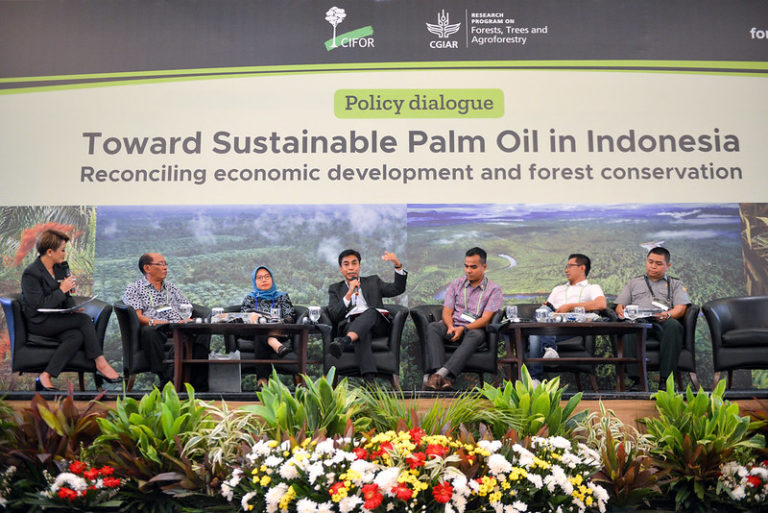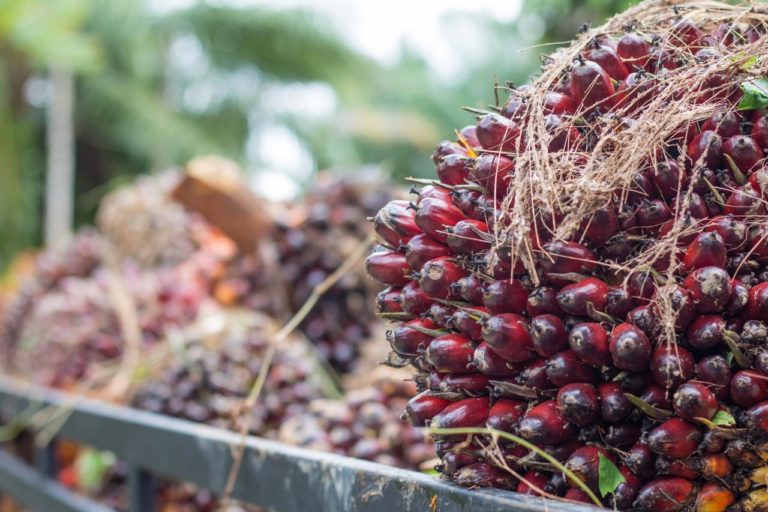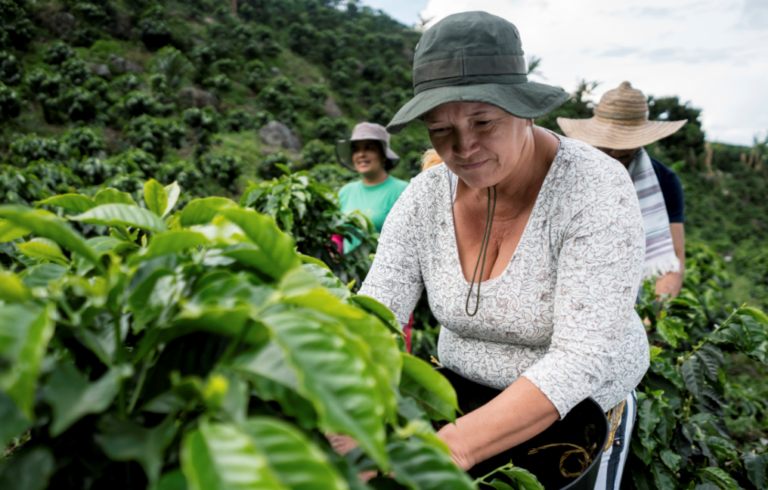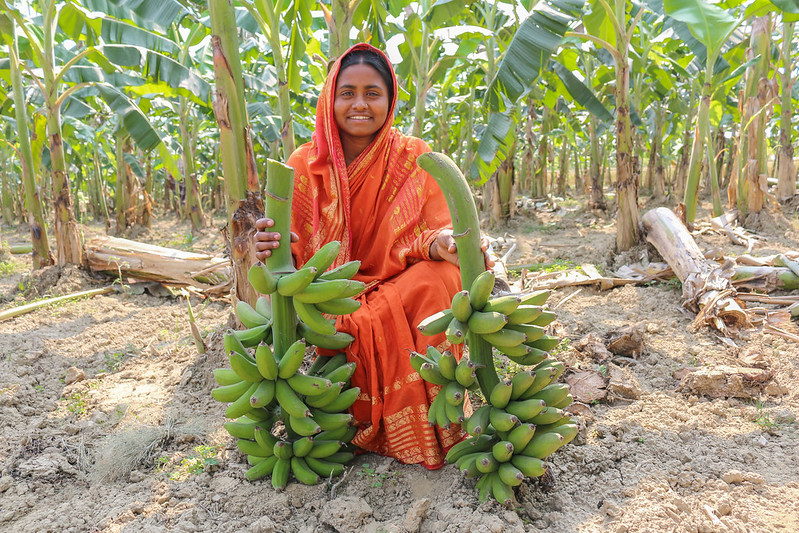The Sustainable Commodities Marketplace Series research helps fill the knowledge gaps around global sustainable consumption and production for eight commodities—bananas, cocoa, coffee, cotton, palm oil, soybeans, sugar, and tea—uncovering important trends and information to support action on improving environmental and social performance in these sectors through VSS.
IISD researchers have drawn a few key conclusions after studying the sustainability potential for eight popular commodities — bananas, cocoa, coffee, cotton, palm oil, soybeans, sugar, and tea. IISD’s State of Sustainability Initiatives has recently completed an extensive research project giving a market overview for important agricultural sectors that employ voluntary sustainability standards (VSSs).
Growth in VSS-compliant commodities is outpacing conventional production
Across the eight commodities, IISD observed faster growth in VSS-compliant production compared to conventional products. For example, VSS cotton experienced a 48% compound annual growth rate between 2009 and 2016, while the conventional supply contracted. This trend continued in the period 2016–2018. Single-sector standards, such as Bonsucro for sugarcane, the Better Cotton Initiative (BCI), and the Roundtable on Sustainable Palm Oil (RSPO), are playing a major role in driving this growth.

This unmistakable growth trend indicates that certified commodities are on track to make up an increasing share of their respective markets. In some sectors, where VSS-compliance rates are lower, there is great potential for further growth.
Related Articles: How the Rainforest Alliance are “Reimagining” Sustainability Certification ¦ To Achieve The UN’s SDGs, We Need To Start Increasing Farmers’ Incomes
The share of VSS-compliant production varies between the commodities. For crops such as coffee, cocoa, cotton, tea, and oil palm, VSS-compliant products made up an estimated 20%–30% of global production in 2018. On the other hand, VSS-compliant bananas, soybeans, and sugar accounted for less than 10% of global production.
Western consumers are driving demand for sustainable products, along with businesses and regulators
Seeking healthier and more sustainably grown products, consumers in Europe and North America are behind much of the demand for certified commodities. This demand has had a major impact on the banana, cocoa, and cotton markets, where VSS-compliant products have reached 10%–15% of retail sales in these regions.
Additionally, value chain actors such as commodity traders, food processing companies, and retailers are increasingly adopting sustainable sourcing commitments to buy VSS-certified commodities. They are often motivated to meet consumer demand and manage supply chain and reputational risks.

For example, some companies, including Colgate-Palmolive, Nestle, P&G, and PepsiCo, have committed to sourcing 100% VSS-compliant palm oil. These commitments can also bring companies into compliance with anti-deforestation policies and other regulations in the sector.
Some regulatory frameworks now define commodity sourcing conditions in both producing and consuming countries, which could use VSS-compliance as due diligence and an enforcement mechanism, while others use VSSs in export promotion measures. Examples include the Soy Moratorium for soybeans produced with zero deforestation in Brazil, the European Union Renewable Energy Directive for palm oil, and the Mozambique government’s efforts to produce 100% sustainable cotton by engaging with the Better Cotton Initiative.
Monitoring, enforcement, and product traceability remain difficult
Monitoring and enforcing VSS-compliance is a challenge, given the complexity of each value chain and the numerous and varied producers, sectors, and jurisdictions involved. Unfortunately, there are documented cases of certified producers operating in violation of their VSS criteria. But new technologies offer great potential to bolster monitoring and enforcement efforts. For instance, satellite-based sensors are now used to detect illegal logging to curb deforestation in palm oil operations.
Satellite-based sensors are now used to detect illegal logging to curb deforestation in palm oil operations.
Tracing sustainably produced products from the farm gate to the end consumer remains difficult. In many cases, certified crops are blended with their conventional counterparts after they leave the farm, losing their sustainability distinction forever. And if decision-makers cannot easily identify sustainably produced products, they cannot choose them.
Raising awareness is crucial to further growth
Global supply exceeds demand for some VSS-compliant products, including palm oil, soybeans, sugar, coffee, and tea. This leads to certified products selling as conventional ones, cutting the price incentive for producers to follow VSSs.
There are a variety of reasons for this demand shortfall, including a lack of awareness about environmental and social issues surrounding agricultural production. This is especially true for hidden commodities, such as palm oil and soybeans, which are mostly used as inputs for other products.
To stimulate demand, it is necessary to raise consumer awareness about how using VSSs can address issues such as deforestation and unfair labour practices related to producing these commodities. This is particularly important in developing and emerging economies, which will fuel future demand as populations and incomes rise.

Raising awareness among supply chain actors, including commodity buyers and traders, can also push them to adopt more ambitious sustainable sourcing commitments, that go beyond serving end-consumer preferences and mitigating risk, and practice greater transparency in reporting their progress.
About the authors: Steffany Bermudez is a Policy Analyst with the SSI-SIDA project on IISD’s Economic Law and Policy Program. David Perri is a Communications Officer with the Economic Law and Policy Program in Ottawa.
EDITOR’S NOTE: The opinions expressed here by Impakter.com columnists are their own, not those of Impakter.com.— In the Featured Photo: A female banana farmer in Bangladesh. Featured Photo Credit: S.Quinn CIP










